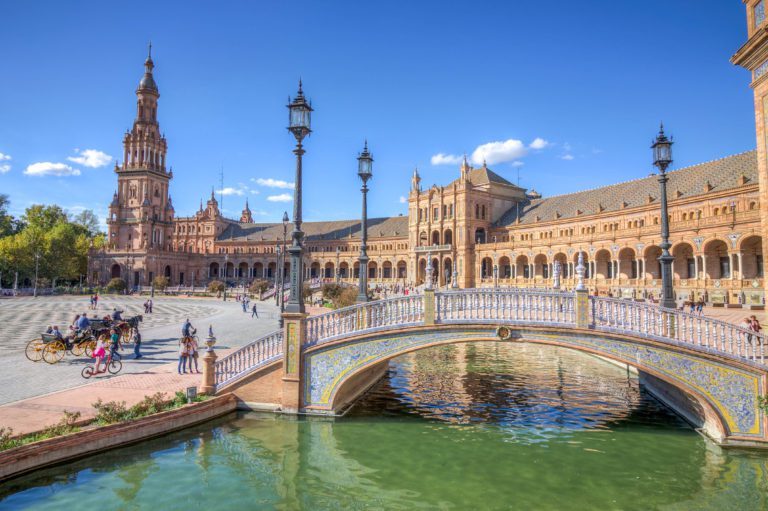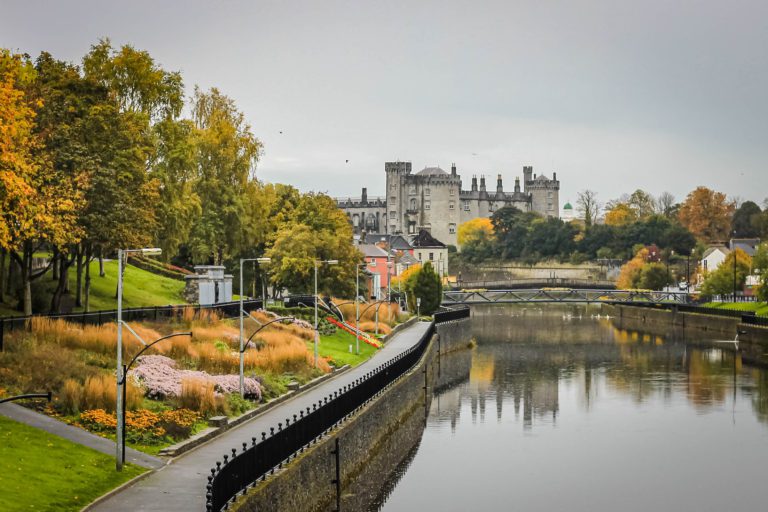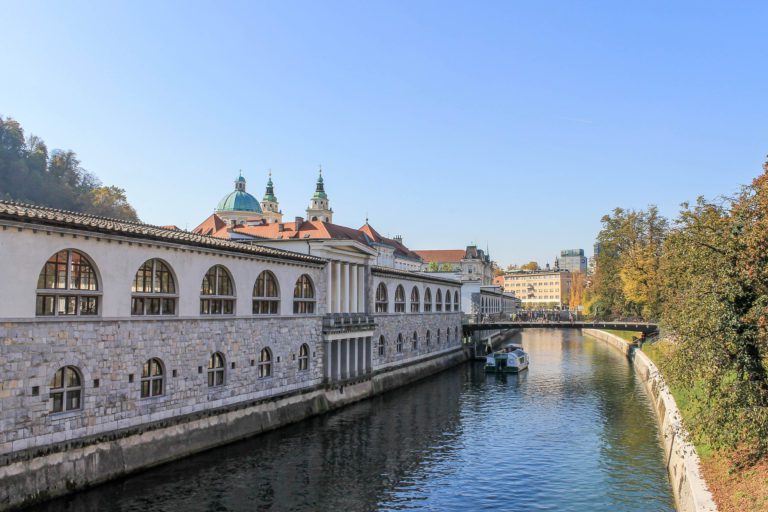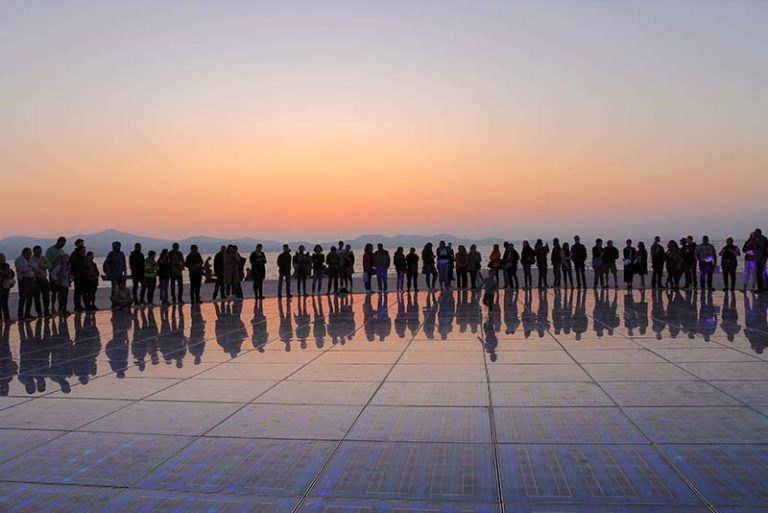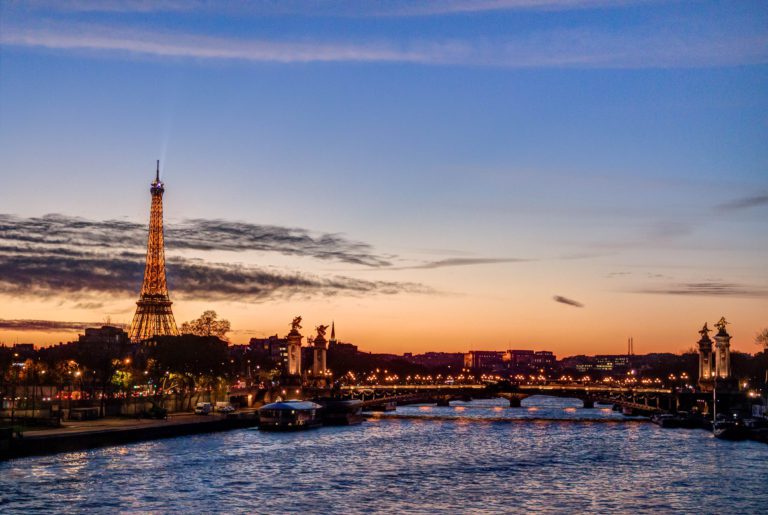Day Trip to Nara Itinerary from Osaka or Kyoto
Nara is one of the most popular day trips from Osaka or Kyoto. A short train ride away from either city, Nara is sure to be a highlight of your time in the Kansai Region of Japan. With plenty of deer that will bow to you for treats and enchanting shrines and temples. This former capital city is the perfect way to immerse yourself in Japan.
While many people do speed-run Nara and do it in only half a day, I recommend setting aside a full day to spend in Nara. It’s a very walkable and enjoyable city so it is worth fully exploring and not having to rush through.
This post contains affiliate links, If you make a purchase through these links I will earn a commission at no extra cost to you. Thank you!
Planning your trip to Nara? Below are some places to stay and things to do
Best Tours and Experiences in Nara- Nara: Half-Day Walking Tour (Have a local guide you)
- Nara: Heart of Nature Temple, Forest, & Waterfall Bike Tour (Adventure in Nara!)
- Hotel the Flag Shinsaibashi, Osaka (Perfect location, beautiful rooms)
- Granbell Hotel, Kyoto (Favourite place I stayed, Japanese-style rooms, onsen)

How to Get to Nara from Osaka or Kyoto
Osaka and Kyoto both have great connectivity by transit to Nara. While either one can be used at the base for a day trip, I chose Osaka as my base. The reasoning behind this is Osaka had cheaper accommodation options than Kyoto and it allowed me to explore more of Osaka.
From Osaka: It takes 50 minutes to 1 hour on the train to Nara. The best option is to get the Kintetsu-Nara Line to Kintetsu-Nara Station as it is closer to the attractions in Nara. This line leaves from Namba Station in Osaka and easily connects with other metro lines in Osaka.
From Kyoto: It takes 35-40 minutes on the train from Kyoto to Nara. The Kintetsu-Nara Line from Kyoto Station is one option to get to Nara. If you are staying in the Gion district, the Keihan Line connects to the Kintetsu Nara Line with a change at Tambabashi Station.

When to Visit Nara, Japan
The best time of year to visit Nara is spring (March to May) and autumn (October to November). Spring and autumn will have the most comfortable temperatures for walking around Nara as most of the time you will be outdoors. You will also have the opportunity to witness the spring flowers or the changing autumn leaves set against the backdrop of Nara. If you travel in the summer (June to September), be sure to give yourself extra time to rest from the heat.
The Perfect Day Trip to Nara, Japan
Nara is the perfect day trip to take on your trip to Japan. I included it as part of a 14-day itinerary for Japan and it was one of the best day trips I took, Mount Fuji and Miyajima were close competition. With multiple UNESCO World Heritage sites and National Treasures, there is plenty to do to keep you busy while exploring Nara for the day.
Kofuku-ji Temple
Kofuku-ji Temple is one of the first temples to explore when you arrive in Nara as it is only 5 minutes from Kintetsu Nara Station. This Buddhist temple has several main things you won’t want to miss on your visit. The National Treasure Museum is worth a visit if you are interested in Buddhist art. One of the more interesting buildings here is the Octagonal Hall, which was reconstructed in the late 1700s and is an important stop on the Saigoku Kannon Pilgrimage.

The Bowing Deer of Nara
It’s impossible to avoid the deer in Nara. I saw my first deer near Kofuku-ji Temple but approaching Todai-ji I saw many more. The deer here are throughout the park. The deer will bow at you to try and convince you to feed them. You can buy deer crackers from vending machines to feed to them if you want to get closer.
While you can pet the deer, do be mindful that they are wild animals. I have heard they can be aggressive, especially if you have food on you. In addition to biting, the deer can knock you over or kick at you.

Todai-ji Temple
Todai-ji Temple is one of the must-sees in Nara. This large Buddhist temple complex was established in the 8th century and is now a UNESCO World Heritage Site. If you want to get more in-depth, you can take a private tour of Todai-ji.
Walking towards the temple, you first pass through the Great South Gate of Todai-Ji. This large wooden gate also contains two guardians known as the two kings of Todai-ji. You will likely see other gates while you are in Japan, but this was the most impressive one I saw.

You do have to pay to get into the Great Buddha Hall but it is worth the entrance fee. If you are collecting tourist stamps or goshuin stamps, both are available here. Upon entering, the Daibutsu (Great Buddha) is towering over you. At nearly 15 m (49 feet), this seated Buddha is the tallest one in Japan.

In addition to the Great Buddha, there are other statues to be found in the Great Buddha Hall as well as recreations of what past buildings looked like.

After exploring the Great Buddha Hall, the Todai-ji Temple Complex has other sites worth visiting, including the Todaiji Nigatsudo (February Hall). From there, you can get panoramic views over Nara. When I visited, you could hear monks chanting inside.
Lunch in Nara
Nara has plenty of great food options for lunch. I stopped at Rokumeien near the Todai-ji Bell Tower as it was a convenient location while exploring Nara. It was a great restaurant to stop and have a set meal of udon soup and is vegetarian and vegan friendly. I was delighted with my meal here and felt like I was having the authentic Japanese experience of dining in a small restaurant at the counter.

Kasuga Taisha Shrine
Kasuga Taisha Shrine was my favourite thing I visited in Nara. Walking up to Kasuga Taisha Shrine you walk along pathways lined with hundreds of stone lanterns through the Kasugayama primeval forest. You may even spot some more deer here, they are believed to be sacred messengers of the Shinto gods.

Kasuga-taisha Shrine is stunning. Walking in you are greeted by many bronze lanterns hanging along vermillion coloured walkways. Following along the path, you walk along the outside of the shrine. The courtyard here is beautiful, offering cherry blossoms in the spring and a large camphor tree wrapped with a straw rope and decorated with paper lightning bolts.
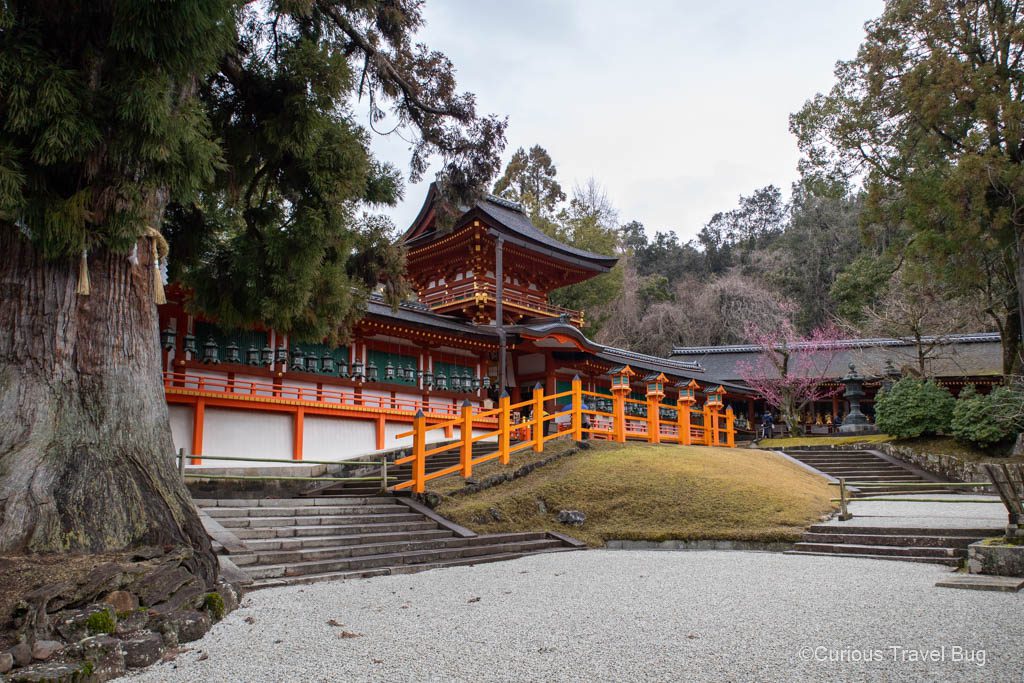
One of the highlights here was unexpected to me. You walk through a doorway with a heavy black curtain and are greeted by a small path that takes you through the dark, illuminated by many decorative bronze lanterns. Many of these lanterns feature interesting artwork such as deer or flowers and are much more detailed than the outdoor lanterns.

On your travels in Japan, you are sure to come across many of the famous vermillion torii gates. Kasuga Taisha has one of the oldest Shinto torii and helped influence the design of torii across Japan.

Higashimuki Shopping Street and Mochi
After wandering around the historic sites of Nara, check out Higashimuki Shopping street close to the train station. This pedestrian street is full of cute shops and restaurants. One of the things that Nara is famous for is its mochi. Mochi is made from rice that is made into a paste and then pounded into different shapes. There are all flavours of mochi so be sure to try some while you are in Japan but its chewy texture isn’t for everyone. At the end of the street check out Nakatanidou, a shop famous for its demonstrations of making mochi.

Day Trip to Nara
Nara was the perfect day trip and a great introduction to historic Japan. While many people do rush it and spend only half a day, it’s worth spending an entire day seeing everything Nara has to offer. It’s one of the best day trips you can do in Japan because of how close it is to two major cities. A day in Nara is worth adding to your Japan vacation.


